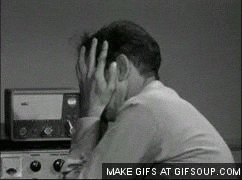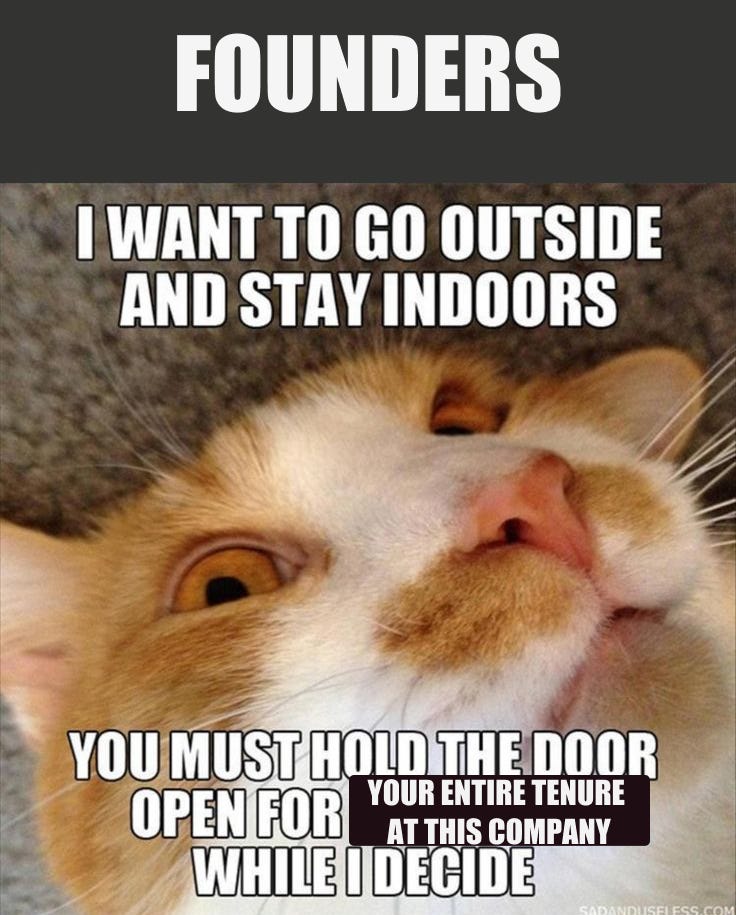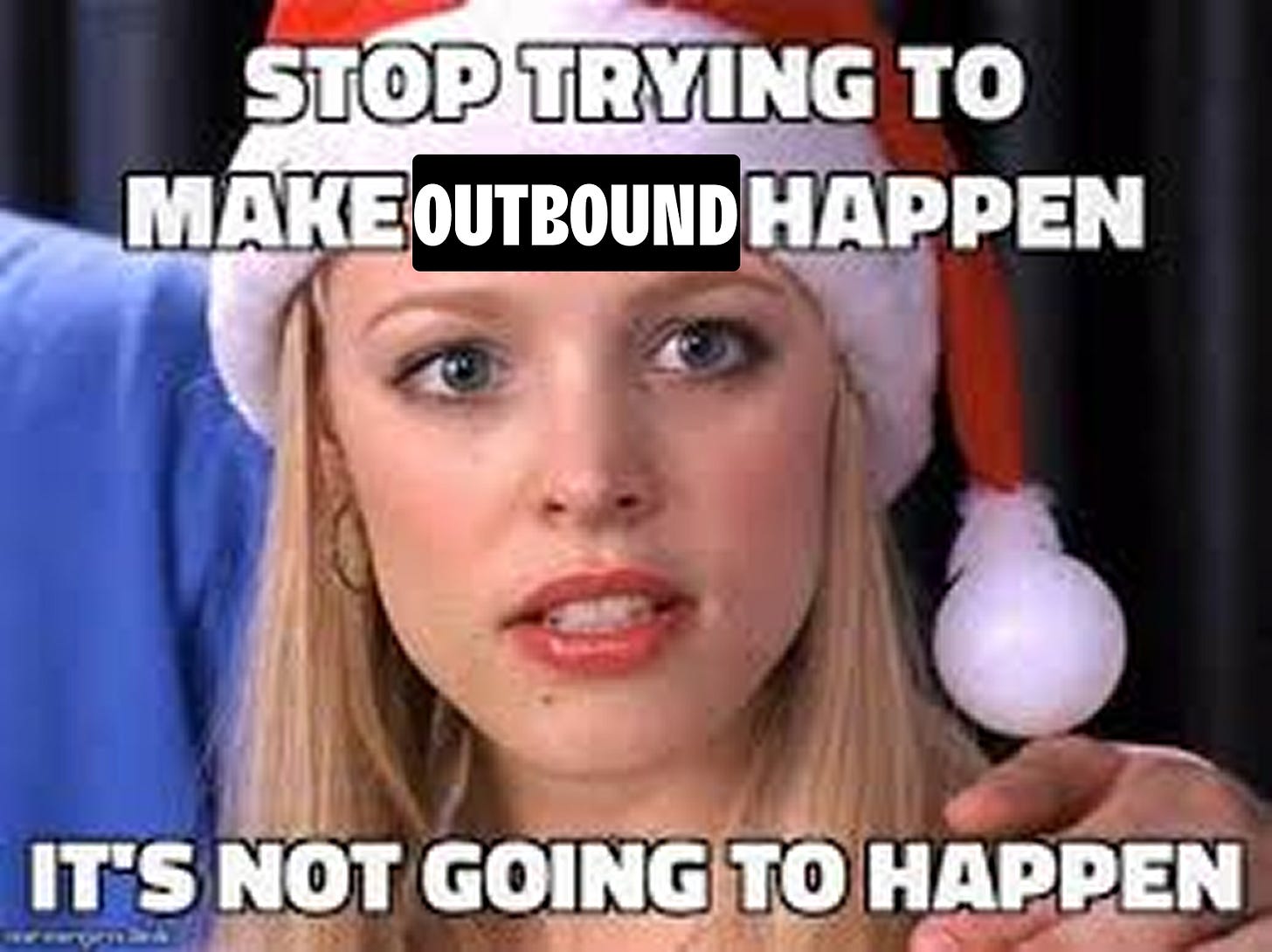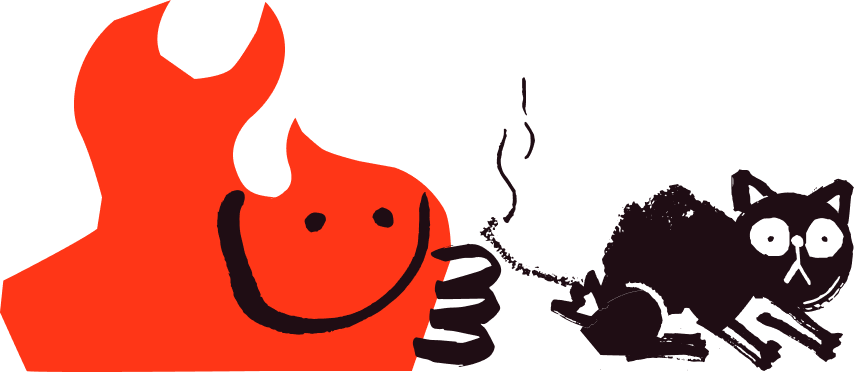Let me cook or let me go
Brand skepticism, business building, and what dating teaches us about our careers
Does somebody wanna talk me off this cliff? Or join me, so I have company?
Bonfire is a brand strategy and storytelling agency. I am a brand marketer. Kevan is a brand marketer. We have 25 years of combined experience in brand and marketing at global startups and agencies. Clients hire us to do brand strategy and brand marketing.
This tracks, yeah?
But then—here’s the twist—some clients spend an entire engagement with us questioning whether brand is valuable. Or resisting the implementation of the brand strategy they asked for. And paid for. Sometimes gently, sometimes overtly, we’re asked to justify the entire premise of the project while we’re in the middle of doing the work.
It’s like being a chef who gets hired to make a five-course meal, only to have the guests walk into the kitchen halfway through and ask: “Do we really need to cook this at all? Couldn’t we just eat the ingredients raw? Actually, wouldn’t it be more efficient if we just slurped all our calories in the form of tasteless nutrient goo, which is what ChatGPT told me to do?”
Like…please. I have finite time on this earth and I am past the point in my career where I need to prove that an entire strategic business discipline has merit. If a client doesn’t understand brand, I’m starting to think that’s a them problem and not an us problem. Which I know is not the most solicitous or collaborative approach to major gaps in client understanding.
But it’s also, increasingly, my approach. Just sayin‘.
Because what is my obligation, as a vendor, to use my valuable time to educate, persuade, and convince a client that they should indeed follow our expert recommendations vs. their obligation to, if not educate themselves, at least have the self-awareness to release control of something they don’t understand into the hands of someone who does? Honestly, those are some of the best clients! They realize they’re out of their depth, and they just lean in to our expertise as opposed to those clients who confront a gap in strategic understanding and then insist that the gap is because we don’t understand their Super Special Snowflake Business which is apparently governed by mysterious forces of the commercial universe no MBA has heretofore studied.
🙄
It’s also not illogical that a couple discovery calls can’t teach a client what we’ve learned over the course of decades, anyway. At a certain point, this whole thing only works if they believe that other people know stuff that they don’t, and they actually let them do it. (Life also works this way.)
Basically: Please let us cook. Or please fire us. At least one of us will be happier.
(It’s us. Us will be happier.)
Not letting market realities change our reality
Something’s shifted in the past few years. The vibe is off. Or maybe the budgets are.
Founders and exec teams say they want a strategic foundation, but they don’t really want to make tradeoffs, ruled by unknowable opportunity costs. They want a clear, differentiated message, but they don’t want to commit to a point of view—or, more likely, they don’t actually have one. They say they want a long-term brand, but they measure it in short-term KPIs.
I'm not saying you have to believe in brand like it's a religion. I'm saying don't hire a priest to do your product marketing.
The problem, of course, is that we’re an agency, and agencies need clients. (Weird how that works.) And so we’re faced with this three-pronged, quite existential question, which is:
Do we start kowtowing to the skepticism of most B2B SaaS startups, hold out for the real ones who actually get it, or start doing something else entirely with the highly fungible skills we have?
Even if you don’t have your own small agency or freelance business, many of you might be asking yourself the same questions about your career. Do you stick it out at places where your skills and expertise are not valued, search the haystack for the needle of a company of your dreams (in this economy?!), or hightail it off into the wilderness to become the Marketing Czar of the Raccoon Kingdom?
It’s understandable if none of that appeals.
Bonfire could, of course, start pitching our services down-funnel—we know enough about content marketing and PLG strategies—or we could think about cookie-cutter brand strategy offerings that are more productized, giving clients the idea that they’ve checked the brand box while requiring no actual brand building of them. We could start making a lot of noise publicly about why brand is actually so important and cite all the studies and invest in lots of education on our site and in our discovery process in order to “build a better client” before we engage.
Or we say eff this, stick to our guns about what we know works and, moreover, who we want to work with, and we pull the trigger on some of Kevan’s creative passion projects (publishing house! chocolate company! brand ROI software!) until we find something that really takes off.
For now, candidly, we’re making the call one month, one client, one season of Bonfire at a time.
The conversations look like: “Ok, it’s clear this client isn’t going to let us cook, but can we do what they want with integrity because our operating account is looking a little sad?”
Or: “This isn’t exactly in our wheelhouse, but do we want to experiment with hiring someone who is an expert in this so we can keep the relationship but make basically no money?”
I think we’re starting to realize that these chats are inherent to being a baby business in a highly volatile market.
Everything I know about business I learned from dating in my 30s
We’re taking a left turn, but hear me out:
I’m trying to think about my work life how I thought about my love life when I started dating in my mid-30s.
I was in a relationship for most of my 20s and into my early 30s. Dating apps had entirely passed me by, so that was already a revelation. And dating as a 30-something with, like, adult money, a fully matured brain, and after good therapy was a whoooooole different thing than “dating” in New York when I was 23.
First of all, I knew who I was now. I knew what I offered, the value I could bring to someone’s life. What worked for me and what didn’t.
Secondly, I didn’t take things personally. I had learned that other people’s behavior was about them, not me, and that someone’s interest or lack thereof was not a referendum on my worth.
And finally, I was really really enjoying being independent for the first time in 10 years. The baseline of my life was stimulating and meaningful, I had creative projects I was excited about, a business I was building, a lovely social circle, and I wasn’t interested in changing or dimming any of that if it didn’t excite someone else.
My manta was: What belongs to me will find me.
That doesn’t mean that breakups weren’t hard, that I didn’t wish some things had worked out differently with legitimately good people. (Or that there weren’t legitimately awful people.) It just gave me a really healthy framing when a relationship didn’t work out: “That wasn’t, ultimately, for me. Learn from it and try again.”
No pathologizing. No being consumed by self-doubt. No going back to the drawing board of how I show up, what I want, who I am.
And I kinda think building a business is a bit like this.
We sorta talked about this a couple weeks ago when we shared our pivot for our digital community, Campout. We changed direction to follow the energy—our energy and the community’s—rather than keep trying to force our original idea to work.
We also spent a lot of time this spring concocting some kind of cold + warm outbound motions to support our agency work. That went…nowhere. You know what did work? Nurturing relationships we already had and showing up as ourselves on podcasts and webinars and letting the “right” people reach out!
But through it all, Kevan and I have really clear values at the core of Bonfire:
Connection: We aim to build authentic connections in all that we do. Through compassionate honesty and an open spirit, we foster a sense of belonging for all who interact with Bonfire.
Exploration: We live for novelty! Curiosity drives us forward, and our pursuit of fun inspires us. All of it fuels our creativity.
Unconventionality: We are unimpressed with tradition. While we don’t pretend to have all the answers, we aren’t afraid to question norms and work outside of the systems that value business over people.
Devotion: Our devotion to our mission is second only to our devotion to one another as friends and business partners. This love, which imbues our work with a sense of purpose and joy, extends to our network of collaborators, our community, and our clients.
In other words, we know how we want to show up in our work, what we want to be doing and with whom, and who we are as a business. We don’t have to reinvent who we are because we’re not right for everybody. (This is, ahem, one of the powers of brand, by the way.)
We can keep being us. We can find the folks who will let us cook. Or we’ll go cook something else!
Over to you…
How do you stay true to yourself when you’re getting destructive, inconsistent, or confusing feedback from your environment? Do you have strategies for staying “on track” in the types of work and career you want? We’d love to hear from you in the comments, or....
Want more like this? Join us in Campout.
In Campout, our digital community, we talk about stuff like this on the daily in our channels and a couple times a month in our live events. All supported by exercises and templates to help you craft a career with purpose and intention.
We just launched a new mini-course, Campout’s Career Compass.
This onboarding exercise takes a novel approach to career design. Instead of waiting for lightning-bolt moments of certainty, we'll help you explore four key territories that, when combined, point toward work that feels both authentic and sustainable.
And join now to browse our event library and catch replays of…
Career Clarity Workshop with us, Kevan & Shannon
Design a Life That Energizes You with
ofPersonal Brand on Your Terms and Conditions with Callie Rojewski of Online & IRL
Beyond AI Prompts: How to Sound Human When the Robots Want You Basic with Meg Moore
Find Your Fit: Reshaping Your Work, Not Yourself with
from
But wait! There’s more…
Wanna hang out?
We’re SOLD OUT for our first retreat this fall, but you can join the waitlist for our next one, coming spring of 2026.
Wanna be friends?
If you love this newsletter and wish it were more interactive, you’re in luck! Join us over in Campout, our digital community for creative marketers and the creative curious.
Wanna work with us?
If you need help with brand strategy and storytelling, fractional brand and marketing leadership, and bringing your brand strategy to life in impactful ways, send us an email at hello@aroundthebonfire.com to get in touch.
As always, you can find us on LinkedIn, Instagram, and Threads.











Just had a convo about this yesterday with a fellow brand strategist and friend trying to start her freelancing business. I firmly believe a strong brand is more important than ever, but it just feels like clients aren’t prioritizing it… Feels like we’re trying to sell something no one wants to buy, but I do think it’s more of an indicator of a volatile economy more than anything else - like you said, everything is about short term results. I don’t know the answer, but I think one method to explore is the more we can tie how much easier it is to move faster and get short term results when you have a good brand
So much of this resonates with me, and I’m an in-house marketer - everything has become about leads and money since the company was acquired. Investors want what they want, and whilst I understand it, I don’t think brand should be overlooked/forgotten about just because it’s deemed not to be instant. Hitting my head against brick walls daily, I’m losing the will to fight.